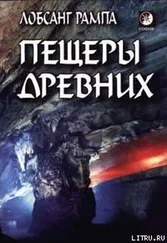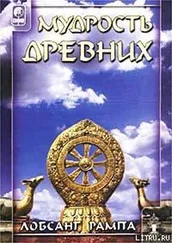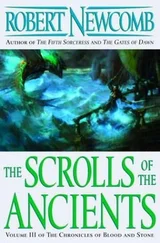The Aedile had been obsessed with measurements, ciphers and calculations. He had been convinced that there was a golden rule by which everything could be divided into everything else, leaving as an irreducible kernel the prime which harmonized the world and perhaps the Universe, the secret signature of the Preservers. His research had never led to anything but a maze in which he had lost himself, but these calculations were different.
Every decad for almost fifteen years, the Aedile had taken measurements of the Great River’s slow retreat from the old shoreline around Aeolis. From these, with elaborate allowances for seasonal variation and for the buffering effect of the ice fields of the Terminal Mountains, he had worked out when the river had begun to fail. The answer was not exact, and hedged with cautious interpolations, but Yama believed that the conclusion was inescapable, and laden with appalling implications.
The Great River had begun its inexorable decline at about the time he had been found by the old Constable of Aeolis in a white boat, a baby lying on the breast of a dead woman.
Now Yama once more fumbled his way through the tables of measurements and staggered rows of calculations, trying and failing to guess what they might mean, by turns frightened and full of wonder. Most people blamed the fall of the river on the heretics; was he then their creature? Or was the fall of the river in some way linked with his birth?
When at last he looked up from the papers, he discovered that someone—probably Pandaras—had settled a blanket around his shoulders. The fire had burned down. Apart from the man on watch at the edge of the clearing, a black shadow against the black water, marked only by the fitful red spark of a cigarette, everyone in the camp was sleeping. Yama switched off the little lantern. He lay down on the lumpy ground and rolled himself up in the blanket and fell asleep almost at once.
He was woken early the next morning by Tamora. Eliphas had disappeared, she said. No one had seen him go, not even the old slave who had taken the night watch.
“He will be back,” Captain Lorquital said. “He has a great curiosity, and he has gone to explore.”
But Tamora said with some satisfaction this was surely proof that Eliphas was the traitor who had betrayed their course to Prefect Corin. She was all for tracking him down and giving him a summary trial and immediate execution, but Yama persuaded her to be patient, and was relieved when Eliphas came back in the middle of the morning, casually walking into the camp as a man might walk into his own house.
He told Yama he had been to the far end of the island. “I know this part of the shore,” he said. “We are very close to the edge of the world, brother, and a marvelous shrine that stands beyond it.”
Yama was sitting on the mossy bole of a fallen tree in a patch of sunlight. Pandaras was cutting his hair. Aguilar and Anchiale were trimming branches from the trunk of a felled pine; the steady sound of their axes rang across the clearing. There was a smell of fresh sawdust and pine resin. A cauldron of pitch sat on white-hot embers in the center of the cleared area, sending up reeking fumes in the sultry heat. In the bright sunlight beyond the shade of the trees, the Weazel lay canted in shallow water. Watched by Captain Lorquital, Phalerus and the two slaves were working up to their waists in water, cutting and prying away damaged planks.
“The shore must have changed very much,” Yama said to Eliphas. “How can you be certain?”
“You will see, brother, if you come with me. The water is very shallow on the other side of the island. We can wade across to the old shoreline, reach the shrine beyond the edge of the world and return, all in a day.”
Pandaras combed cuttings from Yama’s hair with his claws. After a moment, he said, “You have hard places under your scalp, master. Here and here.”
They were smooth and flat, and had straight edges. One was twice the size of the other. They moved slightly beneath Yama’s fingertips. He did not know what they were—or rather, he still could not quite put a name on them—but he was not alarmed.
“I noticed one a few days ago,” he said. “They do not hurt. It is nothing.”
“My master is ill,” Pandaras told Eliphas. “He needs to rest.”
“I am quite well,” Yama said. “Where is this place?”
“It is not much more than a stroll,” Eliphas said, “even for an old man like me. It is a very unusual place, brother. I believe you will learn much from it.”
In the end, they made an expedition of it. Captain Lorquital sent along the cook to collect fresh roots and greens. Tamora insisted on coming; so did Pandaras, although he was still much weakened by his bout of river sickness.
Crossing the island was easy enough, for little flourished in the dense shade of the blue pines which grew along its central ridge. Eliphas led the others down a path he had cut through a belt of tamarisk and swamp grape, and then they were out in sunlight at the edge of a shallow creek that spread between the island and the low cliffs of the old shore.
The tower was black and slender, standing half a league off like a beckoning finger against the deep blue sky. Eliphas said that once upon a time it had been decorated with prayer flags and banners, and mankites had been flown from its top to keep watch for floating islands.
“There was a camp of soldier monks here each summer. The currents of the air are much like those of water, and this is a place where the islands sometimes gather in shoals and archipelagoes that stretch far away into the sky.”
Floating islands!
As a boy, Yama had visited the far-side shore every year, when the Amnan had crossed the river for the festival at the beginning of winter, but he had only ever seen one floating island at close quarters. Although a few could always be glimpsed beyond the edge of the world, scattered across the vast blue depths of the sky which wrapped around the world, they were usually so distant that even when Yama looked at them through his stepfather’s spyglass they remained little more than dots. It was said that rebel machines lived on the islands, and that tribes of heretics, cannibals and pirates traveled from island to island on the backs of eagles feathered in metal vanes, or on mankites or in balloons. Yama had dreamed that his people might live there too.
Yama had finally seen an island at close quarters two years ago. It had been the last festival that Telmon had attended; at the end of that winter he had set off downriver toward the war, and news of his death had reached the peel-house at midsummer, just after the turning of the year.
That day, Telmon and Yama had gone hunting for cassowaries, leaving the smoke and noise and mud of the festival encampment of the citizens of Aeolis far behind. Winter had come early. Telmon and Yama were mantled in woolen ponchos. Their ponies sent up plumes of steam with every breath. It was almost dark. They had found no cassowaries, but just as they were about to turn back, they flushed out a basilisk.
The size of a small dog, the creature stood foursquare in front of the burrow it had scraped out beneath a briar patch. It raised its frilled mane, yawned to show the triple rows of teeth within its black mouth, and arched its naked, segmented tail over its back. A single drop of venom hung from the hooked spine of its stinger.
Although Telmon and Yama kept a safe distance, Yama’s pony stepped about so much that he had to dismount and hold the animal’s head and breathe into its nostrils to calm it. He threw stones at the basilisk, but the creature snatched them out of the air and swallowed them, much to Telmon’s amusement.
“He swallows stones as birds do, so that he can grind food in his crop. The Amnan say that one will sting itself to death rather than be captured. Unlike snakes, they are not immune to their own poison.”
Читать дальше












